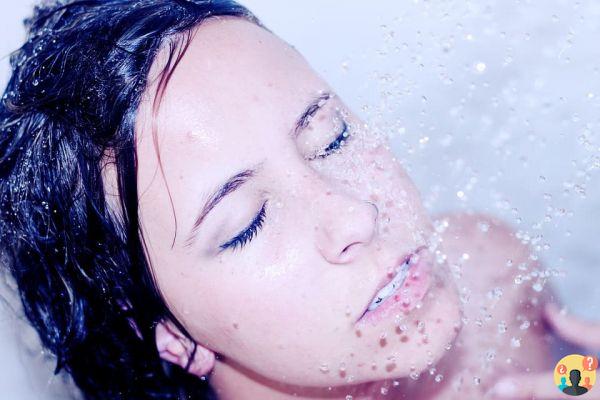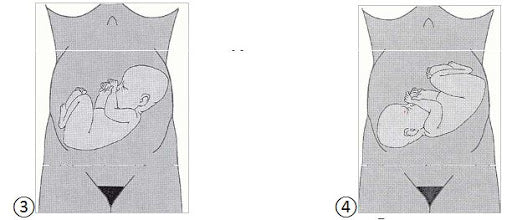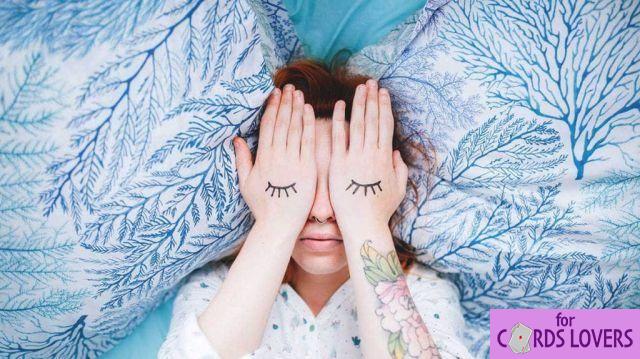
For many people, a shower at night seems like a natural end to the day. This nighttime habit can affect your body temperature and, therefore, the quality of your sleep. So should you take a shower before sleeping?
Body temperature plays an important role in the sleep-wake cycle, and the human body naturally experiences a decrease in core body temperature. Before sleeping at night. Scientists have found that by affecting this natural process of temperature regulation, showers and baths can affect sleep. Here are the benefits of showering before bed and discussing whether a hot or cold shower is better for sleep.
Benefits of showering before bed
When incorporated into a bedtime routine, a nighttime shower can help signal your brain that it's time to sleep. Showering at night also ensures that you'll be cleaner when you go to bed, reducing the buildup of sweat, dirt and body oils on your bedding.
Additionally, research suggests that taking a shower before bed may provide other benefits. These benefits vary depending on whether you take a hot or cold shower.
Effects of hot showers on sleep
A growing body of research suggests that taking a warm shower or bath before bed can improve sleep. In the hours before bedtime, a human's core body temperature naturally cools, while the skin temperature of the hands and feet increases.
Scientists hypothesize that immersing the body in hot water aids this natural process of temperature regulation, thereby improving sleep. Researchers have dubbed this phenomenon the “hot bath effect”.
Research lends credence to the hot bath effect. A meta-analysis of 17 studies found that taking a shower or bath at night in water between 104 and 108,5 degrees Fahrenheit improved sleep quality.
Those who take a bath or shower one to two hours before bedtime also fall asleep faster. Researchers believe that hot water stimulates blood flow to the hands and feet, allowing body heat to escape faster.
A recent study of older adults also found that taking a hot bath one to three hours before bedtime helped them fall asleep faster.
A warm bath or shower before bed can do more than just improve sleep. In a study of older adults, a bath between about 104,5 and 106 degrees Fahrenheit lowered blood pressure4 before and during sleep, especially when taken less than an hour before bedtime.
Some people also take a hot shower before bed when they have a cold, as inhaling hot steam is a popular home remedy used to reduce nasal congestion. Current evidence does not support the benefits of steaming for nasal congestion, but you can try this method to see if you find relief.
Effects of cold showers on sleep
Researchers have tried to take advantage of cold showers to optimize body temperature for sleep, with mixed results. A study found that athletes who immersed themselves in cold water for ten minutes after evening exercise experienced a drop in core body temperature, fewer nocturnal awakenings, and a higher proportion of deep sleep over the course of the night. first three hours of sleep.
Not all research on cold showers has been so promising. Another study found that after being immersed in cold water seven minutes after evening exercise, core body temperature first rises and then leads to a drop in core body temperature four to five hours later.
This decrease in body temperature does not seem to affect sleep quality, however. Study participants also experienced an increase in heart rate.
A similar study on young footballers found that immersion in cold water after an evening training session did not affect sleep.
Cold showers may not improve sleep due to the stimulating properties of cold water. Immersion in cold water increases cortisol and norepinephrine levels. Cortisol is involved in increasing alertness levels and as a result cortisol levels in the body generally fall in preparation for sleep. In one study, participants compared the energy intake of a cold shower to the effects of caffeine consumption.
That said, bathing in cold water might provide benefits unrelated to sleep. Athletes sometimes use cold water in an attempt to reduce muscle soreness and fatigue.
Anecdotally, people take cold showers because it improves mood and optimizes blood circulation for healthier skin and hair, although not all of these benefits have been scientifically proven.
Cold water immersion is also associated with improved metabolism and a stronger immune system. One study found that incorporating even a minute of cold water at the end of a shower routine cuts the number of sick days a person takes by about a third during the shower season. flu.
Hot or cold showers: which is better for sleeping?
A growing body of research shows that warm or hot showers at night improve sleep. However, athletes may find that cold showers help reduce muscle stiffness, which may contribute to better sleep by reducing discomfort.
If you plan to shower at night to promote sleep, you may want to consider taking a hot shower instead of a steaming shower. Research shows that hot water can cause more dramatic changes in blood pressure in older people.
Researchers are still working to determine what is the best time frame for a shower before bedtime. Most evidence seems to indicate that showering one to two hours before bed gives the body enough time to reach the right temperature for sleep.


























